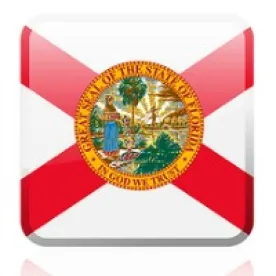Four hundred and fifty-six days after it was approved by more than 57% of the Hillsborough County electorate, legal challenges to a county charter amendment that added a 1% sales tax designed to finance the county’s transportation infrastructure and transit service reach the Florida Supreme Court for oral arguments on February 5. There are two cases pending: one challenging the constitutionality of the tax itself, the other challenging the validation of the bond issuance that would be repaid through the new tax proceeds. The constitutionality challenge was brought by one of the county’s elected county commissioners, with the county government being one of the defendants, while the bond validation challenge was brought by both the commissioner and a local resident.
County charters in Florida allow a locality to create its own form of “local constitution” that gives all “powers of self-government not inconsistent with general law,” pursuant to the Florida Constitution. In this case, the sides differ on whether the charter amendment, after the trial court’s determination, conflicts with chapter 212 of the Florida Statutes. In recent years, the Florida Legislature has been much more active in preempting local government actions through state legislation, so this case has the potential to further define the powers of local government in Florida, as well as locally impacting Hillsborough County’s transportation plans.
At the trial level, the sales tax survived, but some of the provisions included in the voter-approved county charter amendment were stricken by the court. The Second District Court of Appeal deemed the matter to be of great public importance and therefore certified the appeal of the trial court’s ruling on constitutionality to the Florida Supreme Court, where it joined the directly appealed bond validation case. In September 2019, the Florida Supreme Court set a briefing schedule and picked February 5, 2020, as the date for oral arguments.
Since September 2019, the local sales tax referendum has attracted statewide attention. Amicus briefs were filed by the Florida House of Representatives, the Florida Senate, and Associated Industries of Florida supporting the challengers; and by the Greater Tampa Chamber of Commerce, the Tampa Bay Partnership, and the Tampa Hillsborough Economic Development Corporation supporting the local governments.
The arguments on appeal center on whether the trial court properly severed provisions of the charter amendment that it determined were unconstitutional while retaining the remainder. The challengers argue that the entire ballot measure conflicted with the state’s general law that permits counties to institute a transportation surtax. The defenders, including the county and local city governments, argue that the charter amendment accomplished its overall purposes, even with some provisions stricken.





 />i
/>i
